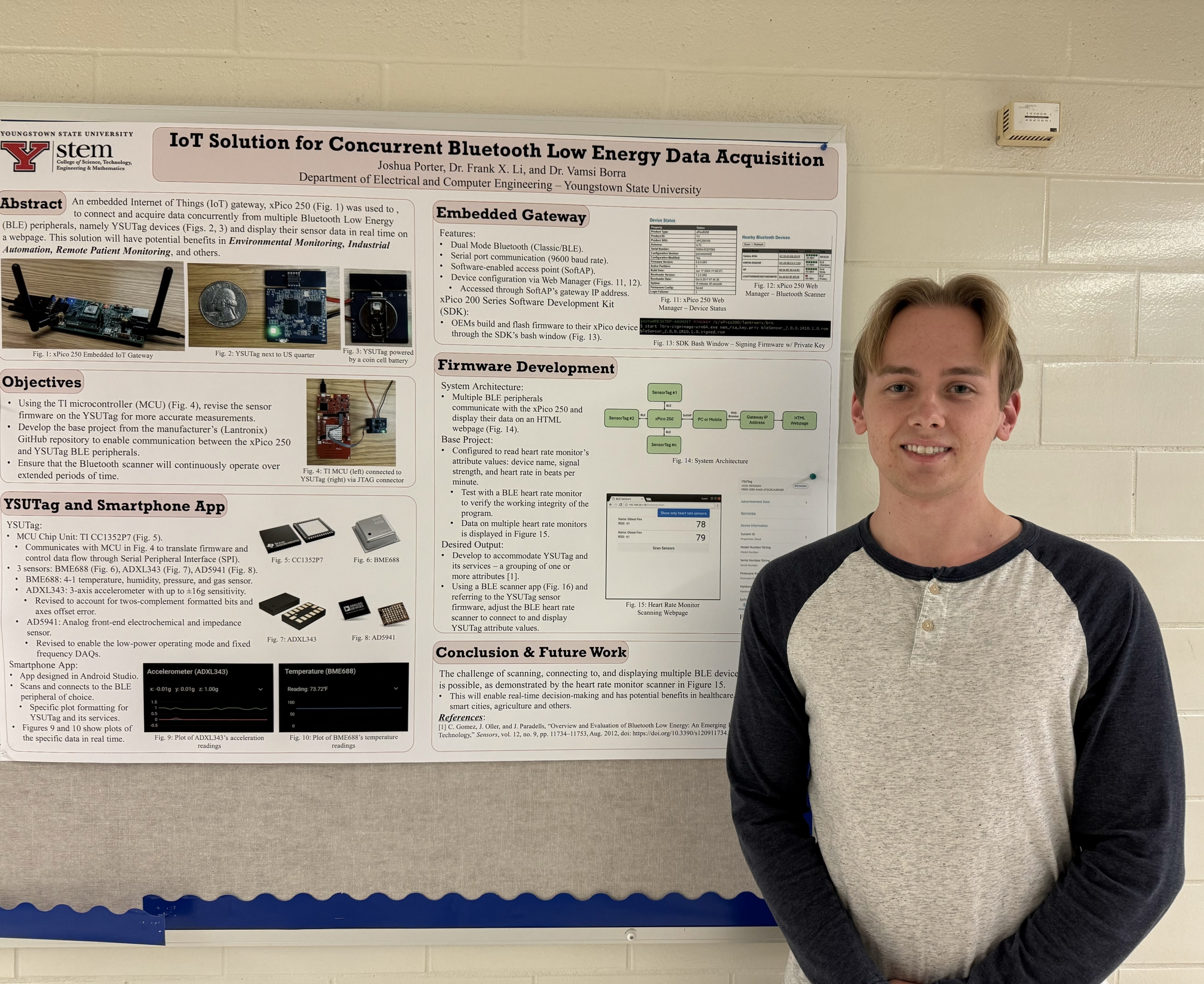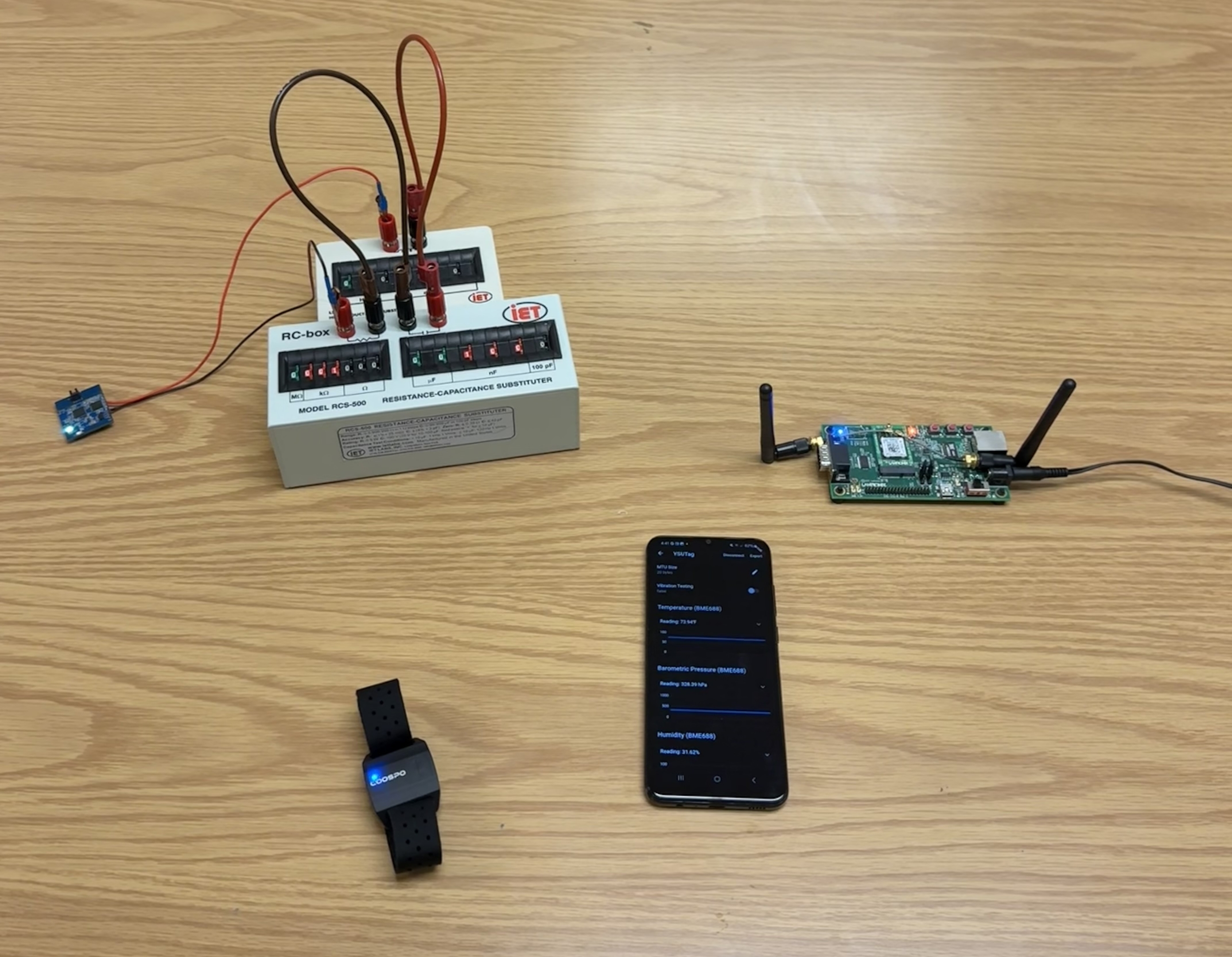Pioneering Progress: YSU student showcases master’s thesis at Innovation Day 2024
Student Spotlight
 Innovation Day 2024 was host to a wide variety of extraordinary innovators and entrepreneurs. One of which was Joshua Porter, a second-year electrical engineering master’s student at Youngstown State University. For his master’s thesis, he has been working extensively under the mentorship of YSU professors Vamsi Borra and Frank Li with Bluetooth Low Energy (BLE) to enhance research and data collection capabilities across industries.
Innovation Day 2024 was host to a wide variety of extraordinary innovators and entrepreneurs. One of which was Joshua Porter, a second-year electrical engineering master’s student at Youngstown State University. For his master’s thesis, he has been working extensively under the mentorship of YSU professors Vamsi Borra and Frank Li with Bluetooth Low Energy (BLE) to enhance research and data collection capabilities across industries.
“Bluetooth Low Energy is [used] for smaller devices such as smartwatches or AirPods...we're reading data from sensors on a chip that was manufactured by other electrical engineering students, and this data gets sent to a smartphone app over a Bluetooth Low Energy connection,” Porter stated.
Each chip hosts three separate sensors; one that measures temperature, pressure, humidity, and gas, one that serves as an accelerometer, and an impedance sensor. The chips grant the ability to take measurements from separate controlled environments at one time, expediting the data collection process.
Porter gave the example of temperature measurement: “If we want to isolate different environments, say, a hot room and a cold room, and record the temperature in those two rooms at one time, we can do that...it would reduce the time it takes to get all this data.”
 The project hasn’t come without its challenges. When asked about these challenges, he mentioned that there is a big learning curve for the coding and programming side. “In one project there could be hundreds of different program files, and you're trying to make sure that all those files are working,” he said. Porter also experienced some challenges whilst getting accustomed to the chips’ hardware, and subsequently having to contact the manufacturer to address these issues.
The project hasn’t come without its challenges. When asked about these challenges, he mentioned that there is a big learning curve for the coding and programming side. “In one project there could be hundreds of different program files, and you're trying to make sure that all those files are working,” he said. Porter also experienced some challenges whilst getting accustomed to the chips’ hardware, and subsequently having to contact the manufacturer to address these issues.
Porter further credits those hurdles for the key takeaways from the project. He now has a deeper understanding of the sensors and how they work, as well as how the data they have recorded is being processed. He particularly values his learnings about Bluetooth functionality. “You don't really think about how Bluetooth works. You just connect to your headphones or smart watch. You don't know how that process works,” he stated.
Introduced to the project around one year ago, Porter explained that his selection of this project for his master’s thesis was a two-pronged decision; equal parts interest and influence. “They wanted me to continue that research and try to make this thing work,” he explained. Porter was quick to credit his peer, alumni Brendan Kuzior, whom he took over the project from. To him, they have been instrumental through every step of the process as he aims to finish his work on the project and graduate with his master's at the end of this semester.
Upon graduating, Porter says he wishes to continue programming for a local company. He spent time as an intern at Davis Alloys Manufacturing in Sharpsville, Pennsylvania over the summer, and he expressed desire to continue his work there. He is also open to other programming opportunities. “You know, doing this research has definitely benefited me, and I'd like to continue that when I go into the industry,” he said.
